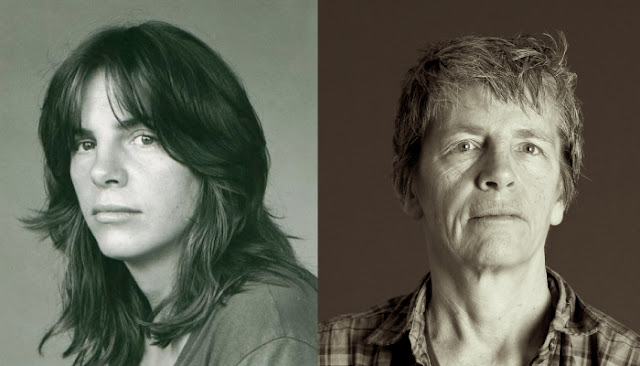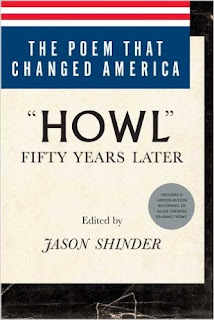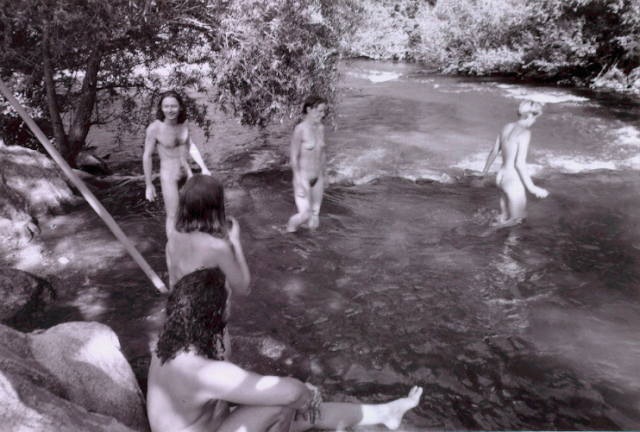(from a reading given at The Poetry Project(St Mark's Church) in New York in February of that year, hitherto unpublished (the transcription is by Joshua Beckman and Simon Pettet)
"Now, I go into dime-stores on Saturdays after matinees.
I do because there are girls in the stores.
But that’s going out of our mutual way, and what I wanted to do was set up some sort of a person as methodology for understanding my own effects in society. It’s reaction against myself.
In the ordinary accustomed passage to the working combinations of well-applied machinery and carefully-planned traffics. So much time goes into the overall programming of new appliances and neat fixtures, simply so I want to know who I am and what I mean just to others.
Day-to-day events. Not enough thinking of certain geniuses getting together to lay down future courses of events in deliberate protective mechanisms merely allowing men and women as myself the chances and opportunities to uncover the rights of purblind facts of ourselves dictated down canals of legend.
I have an uncertain past or palace in Tangiers. Photographed parties unremembered giving or nor attending, though life says I have the balls know I did, Parisian gowns
I’m supposed to own and read from diaries, dipped favorite colors l’amour of gracious the king of Spain Gods on over unearthly manorial ramblings.
Babs, they call me. 96 pounds, living off coke.
Carried away in one handsome manservant, arms to the next two rooms one may never see married half a dozen times to princes, a baron, a movie actor, a South American playboy, boy
What I want to know is why do I live alone on fifty-dollars a week in a two-hundred-and-ten dollar apartment on the Beacon Hill side of Boston?
Walk that I love, Walk-up that I love above the city high-looking Charles behind the State House Capitol. Queen of town. I guess lucky stars are something to do with it
the cooling labors of millions of well-to-do citizens. Something close to it the cooperative authors of decades, generation in legion nearby central, searching of their total shore recognisance both here and there within their own assessments. not Storrs Kootenay sacrifices willingly at comparison.
I was born Colorado gold-mine, despite daily assurances such places do exist
the mind’s enemies would have us deny that structures, the Waldorf Astoria take place, Grant Avenue was known DuPont, and St. Mary’ church at the corner of Grant and still California, perusing legends I believe William O’Brian wishes to call Bill
as he feels should be spoken at a certain moment. For instance, last evening
out of a dream. We were together through the Russian summit meeting.
Was I Stalin, note-worthy Napoleon? they called me, called Storrs, are they Connecticut livelihood, viceroy of China, in deed, when I am prelate not to chairman Chao May-Stung, but immortal bard itself.
Picketing at the pier I read the twenties working woman protest dime store
heiress returns denials absentee ownership I found a million dollar baby or
dinner dance debut guarantees one half of a million schmeckers tabbed outlay.
All disproved not a word of it true. As far as I know, born on welfare ADC and still near unto it.
Countess Hogwits, Reverend Lowe, on page 213 did the world invoke one of ten Americans with a six closed sense crawls himself through 00C 1933 – 1943
The former Barbara Hutton chooses clothes with an intuitive sense of the feminine. She can be both pretty and chic. A difficult paradox. Crisp and immaculate 2W porcelain and looks at night like a doll wearing a fantastic Edwardian dog collar of rubies and on the tennis court like small boy.
Veronica Lake with Donald Bain the Citadel Press, New York subsidiary of Lyle Stuart Inc. 222 Park Avenue South 10003, manufactured 1971
What a good year it was.
My father died.
Of course he would shoot me now if he could,
but I won’t go into that, since I saw a tennis court recently."







































































